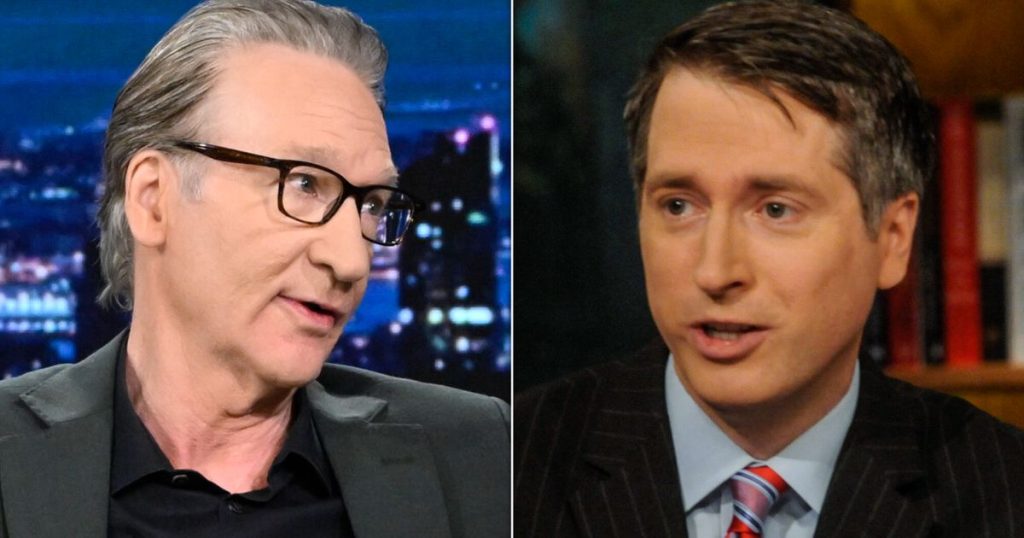Bill Maher and conservative guest Rich Lowry clashed on “Real Time” over Lowry’s condemnation of the January 6th riot by Trump supporters, with Maher suggesting that Lowry’s disapproval is not strong enough to prevent him from voting for Trump. The discussion revolved around the Supreme Court granting presidents broad immunity for official acts, as a criminal case against Trump for his actions on January 6th proceeds. Lowry, while denouncing Trump’s behavior during the riot, suggested that Democrats might come to appreciate the court’s decision if Kamala Harris, Trump’s potential 2024 rival, faces an indictment for official actions in the future.
Maher pointed out that Trump has committed actual crimes, despite Lowry’s assertion that he is appalled by the events of January 6th. He highlighted the unresolved criminal cases against Trump and emphasized that Republicans would have aggressively pursued a case if a Democrat had acted similarly. Lowry argued that prosecutors were strategically keeping Trump tied up in courtrooms for political reasons, implying that the legal actions against Trump were driven by political motives rather than genuine concern for justice.
Maher challenged Lowry on his willingness to vote for Trump despite his supposed appall at the January 6th riot. He suggested that if Trump were to concede elections and not interfere with the Justice Department, he would not be the villain he is perceived as. Maher criticized Trump for politicizing the Justice Department and for refusing to concede elections, which he described as disqualifying behavior for a presidential candidate. He emphasized that Trump’s actions differed from Democrats’ claims of an illegitimate presidency, as Trump actively attempted to stay in office against democratic norms.
Recent developments involving the Supreme Court’s decision on presidential immunity prompted a revised indictment against Trump over the January 6th insurrection. The special counsel filed four felony charges against Trump, which could potentially result in decades of federal prison time if he is convicted. Trump has pleaded not guilty in all cases against him, including charges related to falsifying business records, mishandling classified documents, and election interference. These legal battles are ongoing and could have significant implications for Trump’s future.
The conversation between Maher and Lowry highlighted the deep political divisions within the United States and the differing perspectives on Trump’s actions and potential consequences. Maher’s criticism of Lowry’s continued support for Trump despite expressing disapproval of the January 6th riot reflected a broader debate over accountability and political loyalty. The ongoing legal cases against Trump and the potential outcomes underscore the challenges of addressing past misconduct by public figures and the implications for future governance and democratic norms.












